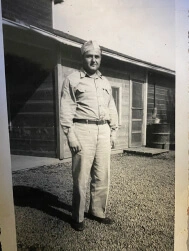VA Disability Rating for Radiculopathy
Living with radiculopathy can turn simple daily tasks into painful challenges. Whether it’s a pinched nerve in your neck making it hard to turn your head or sciatic pain shooting down your leg when you try to walk, this condition can seriously impact your quality of life.
But here’s the frustrating reality – many veterans are getting denied the radiculopathy benefits they deserve because of VA’s rating system and confusing medical terminology. One wrong step in proving your condition is service-connected could cost you thousands in monthly compensation.
Don’t let that happen to you. We’ll break down exactly how VA rates radiculopathy, what evidence you need to win your claim, and how to fight back if you get denied.
What is Radiculopathy?
Think of your spine like a tree trunk with branches (nerves) extending out to your arms and legs. Radiculopathy happens when one of these nerve “branches” gets pinched or squeezed where it connects to your spine. This pinching can happen from things like:
- Herniated discs pushing against the nerve
- Bone spurs from arthritis
- Spinal stenosis (narrowing of the spine)
- Injuries that damage or inflame the spine
When these nerves get squeezed, they can’t work properly. That’s why you might feel:
- Sharp, shooting pain down your arms or legs
- Numbness and tingling that feels like “pins and needles”
- Muscle weakness that makes it hard to grip things or walk
- Problems with movement and coordination
- In some cases, even loss of bladder control
How the VA Evaluates Radiculopathy by Nerve Branch
The VA doesn’t simply rate radiculopathy as cervical or lumbar. Instead, they evaluate which specific nerve branches are affected. This is critical because your rating depends on exactly which nerves are damaged:
Upper Radicular Group (5th and 6th Cervicals)
Affects shoulder and elbow movements, with symptoms that may include:
- Difficulty raising or rotating your arm
- Pain or weakness when lifting objects
- Numbness in specific parts of your shoulder and arm
- Problems with certain overhead activities
Middle Radicular Group
Affects arm rotation and elbow flexion, with symptoms that may include:
- Trouble with arm rotation and wrist extension
- Weakness when trying to bend your elbow
- Pain radiating through the middle of your arm
- Difficulty with pushing or pulling motions
Lower Radicular Group
Affects hand and wrist function, with symptoms that may include:
- Weakness in your grip strength
- Problems with fine motor skills like buttoning shirts
- Numbness or tingling in your fingers
- Difficulty making a fist or holding onto objects
All Radicular Groups
When damage affects multiple nerve groups, causing widespread symptoms that may include:
- Extensive weakness throughout the arm
- Significant limitations in daily activities
- Combined sensory and motor symptoms
- Potential muscle atrophy in severe cases
Other Nerve-Specific Radiculopathy
The VA also rates other specific nerves that might be affected:
- Radial nerve (musculospiral nerve): Controls hand and wrist extension
- Median nerve: Affects thumb and finger movement
- Ulnar nerve: Impacts grip strength and finger dexterity
- Sciatic nerve: Causes the classic shooting pain down the leg
Understanding exactly which nerves are affected is crucial for getting the right VA rating. Your doctor’s diagnosis should specify which nerve branches show radiculopathy, and this information directly determines your disability percentage.
How VA Rates Your Radiculopathy
The VA uses specific guidelines from the Schedule for Rating Disabilities (VASRD) to rate radiculopathy based on which nerve roots are affected and how severely.
Rating Percentages by Nerve Group
The VA considers whether your dominant (major) or non-dominant (minor) side is affected when rating radiculopathy:
Upper Radicular Group (C5-C6)
- Mild: 20% (both major and minor sides)
- Moderate: 40% (major) or 30% (minor)
- Severe: 50% (major) or 40% (minor)
- Complete paralysis: 70% (major) or 60% (minor)
Middle Radicular Group
- Mild: 20% (both major and minor sides)
- Moderate: 40% (major) or 30% (minor)
- Severe: 50% (major) or 40% (minor)
- Complete paralysis: 70% (major) or 60% (minor)
Lower Radicular Group
- Mild: 20% (both major and minor sides)
- Moderate: 40% (major) or 30% (minor)
- Severe: 50% (major) or 40% (minor)
- Complete paralysis: 70% (major) or 60% (minor)
All Radicular Groups
- Mild: 20% (both major and minor sides)
- Moderate: 40% (major) or 30% (minor)
- Severe: 70% (major) or 60% (minor)
- Complete paralysis: 90% (major) or 80% (minor)
The VA considers mild symptoms to be mostly sensory, while moderate to severe symptoms involve muscle weakness, atrophy, or other physical limitations.
Remember: If you have radiculopathy on both sides (bilateral), the VA will apply the bilateral factor, which increases your overall rating.
Proving Your Radiculopathy is Service-Connected
To get VA disability benefits for radiculopathy, you need to show it’s connected to your military service. There are three main ways to do this:
Direct Service Connection
Show your radiculopathy started during service from things like:
- Lifting heavy equipment or supplies
- Vehicle accidents or rough rides in military vehicles
- Hard landings during airborne operations
- Training injuries or repetitive stress
- Falls or other accidents during service
Secondary Service Connection
If you already have a service-connected condition that caused your radiculopathy, such as:
- Degenerative disc disease
- Spinal arthritis
- Herniated discs
- Back strain or injury
- Spinal stenosis
Aggravation
If you had mild back problems before joining the military that got significantly worse during service, you may qualify through aggravation. You’ll need to show:
- Your condition was noted on your entrance exam
- It got worse during service
- The worsening was beyond normal progression
Evidence You Need to Win Your Claim
Strong medical evidence is crucial for winning your radiculopathy claim. Here’s what you need:
Medical Evidence
- Current diagnosis from a qualified doctor
- MRI, CT scan, or other imaging showing nerve damage
- EMG/nerve conduction studies if available
- Treatment records showing ongoing problems
- Doctor’s notes about your symptoms and limitations
Service Records
- Documentation of specific injuries or accidents
- Medical visits for back, neck, or nerve pain
- Records of physical training or duties that could cause spine problems
- Combat records if your injury occurred during deployment
Supporting Statements
- Your detailed description of how radiculopathy affects daily life
- Statements from family or friends who see you struggle
- Work records showing limitations or accommodations
- Notes from supervisors or coworkers about your difficulties
Common Mistakes to Avoid
Don’t let these common mistakes hurt your claim:
- Not getting regular medical care
- Failing to report all your symptoms
- Missing VA exam appointments
- Not explaining how your military service caused or worsened your condition
- Giving up after an initial denial
Got a Low Rating or Denial? We Can Help
If you’ve received a disappointing VA decision about your radiculopathy claim – whether it’s a denial or a rating that’s too low – don’t give up hope. Our experienced VA disability attorneys at ProVet Legal help win appeals for veterans just like you.
When you’re dealing with constant nerve pain, the last thing you need is a battle with the VA appeals system. Let us handle the legal fight while you focus on your health. Our team knows how to:
- Build strong appeals that get results
- Find and present the right medical evidence
- Fight unfair denials and low ratings
- Get you the back pay you deserve
- Navigate the complex appeals system
We’ve helped countless veterans win their radiculopathy appeals, and we can help you, too. Contact us today for a free case review. Remember – if we don’t win your appeal, you pay nothing.
Don’t let an unfair VA decision stop you from getting the compensation you deserve for your service-connected radiculopathy. The pain and limitations you’re dealing with deserve proper recognition and compensation. Let our experienced team fight for you.



